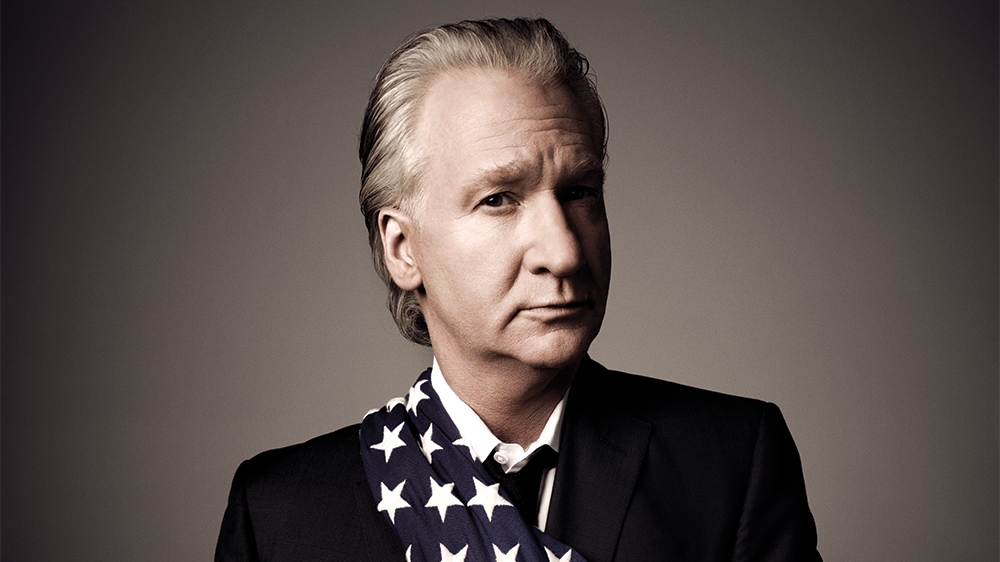Bill Maher’s new chapter: A deep dive into his move to WME and its implications
Bill Maher, the iconoclastic comedian and satirist, has recently made headlines with his decision to jump ship from CAA to WME. This move comes after years of representation by CAA, and it has sparked curiosity and speculation within the entertainment industry. In this article, we will explore the reasons behind Maher’s decision, the potential impact on his career, and what this means for the broader landscape of late-night television.
The catalyst for change
Maher’s decision to leave CAA for WME was reportedly influenced by a clash with CAA executives, as noted in a report by The Hollywood Reporter. The tipping point seemed to be Maher’s exclusion from CEO Bryan Lourd’s private Oscar party. However, Maher himself downplayed the incident, quoting Timothy B. Schmit from the Eagles documentary: “In my experience, all bands are always on the verge of breaking up at all times.” This statement reflects the often volatile nature of relationships in the entertainment industry.
Despite the reported clash, Maher had nothing but praise for CAA, stating, “CAA has been nothing but great to me and for me. I have nothing but great things to say, and I like them personally.” This amicable parting suggests that Maher’s move to WME was driven more by strategic considerations than personal grievances.
WME: A powerhouse of late-night talent
WME, part of the talent-and-sports consortium Endeavor, is no stranger to representing top-tier late-night talent. In 2015, WME acquired Dixon Talent, a boutique agency run by agent James Dixon, which represents heavyweights like Jon Stewart, Jimmy Kimmel, and Stephen Colbert. This acquisition has bolstered WME’s roster and positioned it as a dominant force in the late-night space.
Maher’s addition to WME’s lineup is a significant coup for the agency. With his long-running HBO talk show, “Real Time,” currently in its 22nd season, Maher brings a wealth of experience and a dedicated fan base. His recent two-year extension for “Real Time” ensures that his voice will continue to be heard through the current presidential election and beyond, until 2026.
A multifaceted media presence
Bill Maher is not just a late-night host; he is a multifaceted media personality. In May, he released a new book titled “What This Comedian Said Will Shock You,” adding to his repertoire of written works. Additionally, Maher launched a weekly interview podcast, “Club Random,” in 2022. The podcast, produced by his Club Random Studios, features interviews with a diverse range of guests, including Sage Steele, Shane Smith, and Fred Durst.
Maher’s ability to adapt and thrive in various media formats is a testament to his versatility and staying power. His continued success in stand-up comedy, with regular dates across the country, further underscores his broad appeal and enduring relevance.
The broader implications
Maher’s move to WME is not just a personal career decision; it has broader implications for the late-night television landscape. WME’s strong roster of late-night talent, combined with Maher’s unique voice and perspective, could lead to new and exciting collaborations. For instance, James Dixon’s involvement in behind-the-scenes roles at Comedy Central’s “Daily Show” and CBS’s “After Midnight” suggests potential synergies that could benefit Maher and his new agency.
Moreover, Maher’s presence at WME could inspire other comedians and entertainers to consider similar moves, potentially reshaping the talent representation landscape. As Maher himself noted, “You gotta earn your wings every day in showbusiness.” This sentiment reflects the constant need for reinvention and adaptation in an ever-evolving industry.
A reflective closure
Bill Maher’s decision to join WME marks a new chapter in his illustrious career. While the move was precipitated by a reported clash with CAA executives, Maher’s praise for his former agency suggests that the decision was ultimately driven by strategic considerations. As Maher continues to host “Real Time,” release new books, and produce his podcast, his presence at WME is poised to have a significant impact on the late-night television landscape.
In the ever-changing world of entertainment, Maher’s move serves as a reminder of the importance of adaptability and strategic thinking. As we look to the future, it will be fascinating to see how Maher’s career evolves and how his new partnership with WME shapes the broader industry. For now, we can only watch and wait, eager to see what this next chapter holds for one of late-night television’s most enduring and influential voices.

 Italian
Italian







